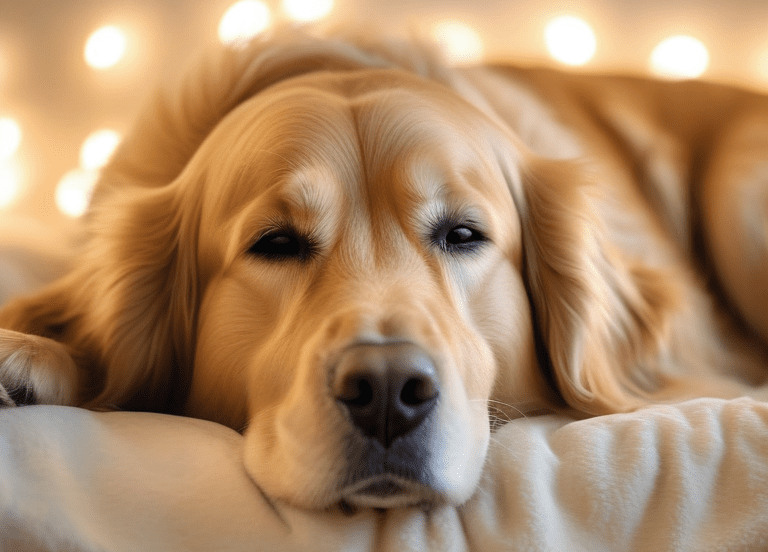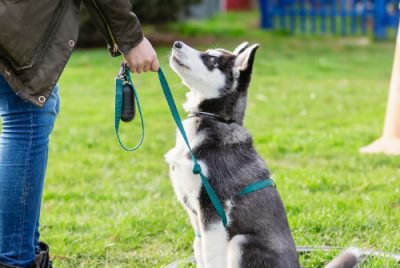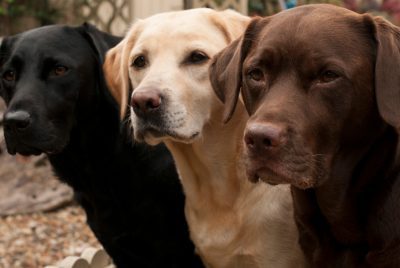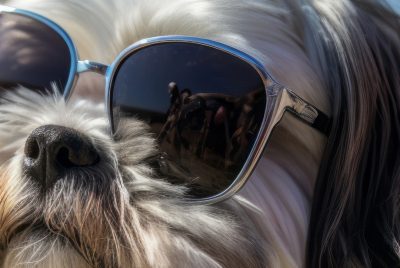Dog Health: How Much Sleep Does a Dog Need a Day?
Post Disclaimer
We may earn a commission for purchases made using our links. Please see our Disclaimer to learn more.
Optimal Dog Health: How Much Sleep Does a Dog Need a Day?
Key Highlights
- Dogs need an average of 12 to 14 hours of sleep daily, with puppies and seniors requiring more sleep than adult dogs.
- The amount of sleep a dog needs can vary based on factors such as age, breed, health, and daily activities.
- Understanding your dog’s sleep patterns and ensuring they get enough rest is important for their overall health and well-being.
- Environmental factors, such as a comfortable sleeping area and regular exercise, can also influence a dog’s sleep quality.
- Recognizing common sleep disorders in dogs and knowing the signs to watch for can help identify potential health issues.
- Implementing practical tips, such as establishing a consistent sleep routine and considering dietary considerations, can improve your dog’s sleep.
Introduction
Dogs spend a lot of time sleeping, but is it normal behavior? Understand your dog’s sleep needs, including factors like age and breed. Learn how to improve their sleep quality and recognize sleep disorders. Gain insights into ensuring your dog gets the rest they need for optimal health.
Understanding Your Dog’s Sleep Cycle
Dogs, like humans, have various stages in their sleep cycle. Understanding your dog’s sleep patterns can offer insights into their health and behavior. Canines experience REM (rapid eye movement) and non-REM sleep, which is essential for their overall well-being. The amount of sleep a dog requires depends on factors such as age, breed, and health conditions. Young puppies and older dogs tend to sleep more, while active breeds may need additional rest to recover. Observing your dog’s sleeping habits and routine can help identify any issues like restlessness or insufficient sleep that may indicate an underlying problem. Monitoring your dog’s sleep cycle is crucial in ensuring they get the adequate rest they need to stay healthy and happy.
The Basics of Canine Sleep
Dogs, like humans, exhibit variations in their sleeping patterns. Understanding a dog’s sleep cycle is essential for their overall well-being. Canines typically go through two main phases of sleep: REM (rapid eye movement) and NREM (non-rapid eye movement). During REM sleep, dogs may display twitching or vocalizations, indicating active brain activity. NREM sleep is a deeper sleep where restorative processes occur. Dogs spend about 50% of their sleep time in REM sleep, which is crucial for memory consolidation. Factors such as age, health, and breed influence a dog’s sleep needs. Puppies and older dogs tend to sleep more, while larger breeds may require extra rest. Observing and adapting to your dog’s sleeping habits can help them get the necessary rest for their health.
Differences in Sleep Patterns by Age
The amount of sleep a dog needs can vary based on their age. Puppies, for example, require significant sleep to support their growth and development. It is not uncommon for young puppies to sleep up to 18+ hours a day as they explore their new surroundings and recover from their active playtime. However, as they grow older and their owners have busy schedules, dogs may adjust their sleep patterns to match their owners’ routines.
As dogs mature into adulthood, their sleep needs decrease slightly. Adult dogs typically need around 10 to 12 hours of sleep daily, similar to adolescents. However, senior dogs, especially those with age-related health issues, may require more sleep to recharge and recover. It is not uncommon for senior dogs to sleep between 18 and 20 hours a day, according to Chyrle Bonk, DVM, a veterinarian at Senior Tail Waggers. Understanding the differences in sleep patterns by age is crucial for maintaining your dog’s health and well-being.
Understanding these age-related sleep patterns can help us ensure that our dogs get the rest they need at each stage.
The Role of Breed in Sleep Requirements
Breed can also influence a dog’s sleep requirements. While no specific research indicates that certain breeds need more sleep than others, factors such as activity level and size can influence a dog’s sleep needs. More active dogs that exert a lot of energy throughout the day may require longer rest periods to recover, while larger breeds may generally require more sleep than smaller breeds. Considering your dog’s breed and individual needs can help ensure they get the required sleep.
Sleep Needs of Large vs. Small Breeds
As mentioned earlier, larger breeds of dogs generally require more sleep than small breeds. This is because larger dogs tend to have higher energy levels and exert more energy throughout the day. The additional physical activity requires longer periods of rest and recovery, resulting in a greater need for sleep. On the other hand, small breeds may require less sleep due to their smaller size and lower energy levels. However, it is important to note that individual variations within each breed can also influence a dog’s sleep needs. It is always best to observe your dog’s behavior and consult with a veterinarian to ensure they get the appropriate rest. Understanding the sleep needs of different dog breeds is crucial in providing proper care for your furry friend.
Breed-Specific Sleep Traits and Anomalies
While no research indicates that specific breeds have specific sleep requirements, certain breed-specific sleep traits and anomalies can occur. For example, brachycephalic breeds (dogs with short, broad skulls and “squished” faces), such as pugs and bulldogs, may be prone to sleep apnea due to their unique anatomy and allergies. Additionally, some breeds may be more susceptible to certain sleep disorders or conditions, such as canine cognitive dysfunction. It is important to know these breed-specific traits and anomalies and monitor your dog’s sleep habits for any potential issues.
Environmental Factors Influencing Sleep
In addition to age and breed, several environmental factors can influence a dog’s sleep. Creating a comfortable and conducive sleeping area and considering the impact of daily activities on nighttime rest can greatly impact a dog’s sleep quality and duration.
The Importance of a Comfortable Sleeping Area
Providing a comfortable sleeping area for your dog is essential for ensuring they get a good night’s sleep. A quality dog bed that provides support and comfort can help promote healthy sleep patterns. Additionally, creating a quiet and calm environment in your home can help your dog relax and settle down for sleep. If your dog is crate-trained, their kennel can also be a safe and comforting sleeping space for your furry family member. Setting up a comfortable sleeping area for your dog can go a long way in improving their sleep quality.
How Daily Activities Affect Nighttime Rest
A dog’s daily activities can significantly impact their nighttime rest. Just like humans, dogs who lead busy and active lives may find it more difficult to wind down and settle into restful sleep. Providing regular exercise and mental stimulation throughout the day can help tire out your dog and prevent boredom, promoting better sleep. Maintaining a consistent sleep schedule and avoiding late-night stimulation can also improve sleep quality. By considering your dog’s daily activities and tailoring their schedule to include appropriate exercise and downtime, you can help them achieve a more restful night’s sleep.
Recognizing Sleep Disorders in Dogs
In addition to understanding a dog’s normal sleep patterns, it is also important to recognize common sleep disorders that can affect dogs. Awareness of these disorders’ signs and symptoms can help identify potential health concerns and allow for proper intervention and treatment.
Common Canine Sleep Disorders Explained
Several sleep disorders can affect dogs. One common disorder is REM sleep behavior disorder, which is characterized by excessive or violent physical activity during sleep, such as biting, barking, or thrashing. Another disorder is canine narcolepsy, a neurological condition that causes sudden and uncontrollable episodes of sleep, often triggered by physical activity or excitement. Recognizing these disorders and seeking veterinary care can help manage and treat these conditions, ensuring better sleep for your dog.
Symptoms and Signs to Watch For
It is important to be vigilant and watch for any signs or symptoms that may indicate sleep issues in your dog. Excessive sleep, changes in sleep patterns, restlessness, and excessive daytime sleepiness can all be indicators of potential sleep disorders. Additionally, behaviors such as excessive yawning, lack of self-control, irritability, and wandering aimlessly may also suggest sleep deprivation or other underlying health concerns, including canine depression. If you notice any of these signs or symptoms, it is best to consult with a veterinarian to determine the underlying cause and appropriate treatment.
Practical Tips for Improving Your Dog’s Sleep
Ensuring that your dog gets adequate and restful sleep is important for their overall health and well-being. Implementing practical tips and strategies can help improve your dog’s sleep quality and duration.
Establishing a Consistent Sleep Routine
Establishing a consistent sleep routine for your dog can help signal to their body that it is time to wind down and prepare for sleep. This can be achieved by setting regular bedtimes and wake-up times and incorporating calming activities, such as a pre-bedtime walk or relaxation exercises. Consistency is key; it helps regulate your dog’s internal clock and promotes better sleep. Incorporating a consistent dog’s routine can help your dog establish healthy sleep patterns.
Dietary Considerations for Better Sleep
Diet can also affect your dog’s sleep quality and overall health. Providing a balanced and nutritious diet can help support their overall well-being, including sleep. Certain foods and ingredients, such as those high in tryptophan or melatonin, may have sleep-promoting properties. Addressing any underlying health issues or dietary sensitivities can also improve your dog’s sleep. It is always best to consult with a veterinarian to determine the most appropriate diet for your dog’s specific needs and ensure they get the nutrients necessary for optimal sleep.
Navigating Restlessness and Nighttime Waking
Restlessness and nighttime waking can disrupt both your dog’s sleep and your own. Understanding the causes of these disruptions and implementing strategies to promote a more peaceful night’s sleep can help both you and your dog get the rest you need.
Understanding the Causes of Restlessness
Several potential causes of restlessness in dogs during sleep exist. These could be due to an underlying medical condition, such as pain or discomfort, anxiety or stress, or environmental factors, such as noise or temperature. Identifying and addressing these underlying causes can help alleviate restlessness and promote more restful sleep for your dog.
Solutions for a More Peaceful Night
If your dog is experiencing restlessness or nighttime waking, there are several strategies you can try to promote a more peaceful night’s sleep. Creating a calm and quiet sleeping environment, providing a comfortable sleeping area, and addressing any underlying health issues can all contribute to better sleep. Additionally, behavioral training techniques and a consistent sleep routine can help promote a more peaceful night for you and your dog.
The Impact of Exercise on Sleep
Exercise, including sleep quality, is vital to a dog’s overall health and well-being. Understanding how exercise affects sleep can help you tailor your dog’s activity levels for optimal rest.
Balancing Activity Levels for Optimal Rest
Regular exercise is important for promoting healthy sleep patterns in dogs. Engaging in physical activity throughout the day helps tire out your dog and expend excess energy, making it easier for them to settle down and sleep at night. Finding the right balance of activity levels for your dog’s specific needs is key. It is important to ensure they get enough exercise to promote restful sleep, but not so much that they are overstimulated or restless at night. By tailoring their activity levels to their individual needs, you can help them achieve optimal rest.
Recommended Exercises Before Bedtime
Incorporating exercise into your dog’s daily routine can benefit their overall health and sleep quality. However, it is important to time their exercise appropriately, especially before bedtime. Engaging in vigorous activity too close to bedtime can actually stimulate your dog and make it more difficult for them to fall asleep. Instead, consider incorporating more gentle exercises, such as a calm walk or interactive play, in the evening. This can help your dog wind down and prepare for sleep. Experiment with different types and timings of exercise to find what works best for your dog’s sleep routine.
Conclusion
Understanding your dog’s sleep requirements is crucial for their overall health and well-being. Factors such as breed, age, and daily activities significantly determine how much sleep your furry friend needs. By creating a comfortable sleeping environment, maintaining a consistent routine, and providing adequate exercise, you can help improve the quality of your dog’s sleep. Look for any signs of sleep disorders, and consult your vet if needed. Remember, a good night’s sleep is essential for your dog’s physical and mental health, so make sure to prioritize their rest just like you would for yourself.
Frequently Asked Questions
How many hours should my dog sleep each day?
On average, dogs need around 12 to 14 hours of sleep daily. However, this can vary depending on their age, health, breed, and activity level. Puppies and seniors may require more sleep, while adult dogs typically fall within the average range.
Can certain foods or supplements improve my dog’s sleep?
While specific foods or supplements may not directly improve your dog’s sleep, providing a balanced and nutritious diet can support their overall health, including sleep. Consult with a veterinarian to determine the most appropriate diet for your dog’s needs.
What should I do if my dog’s sleep patterns suddenly change?
If your dog’s sleep patterns suddenly change, it is best to consult with a veterinarian. Sudden changes in sleep patterns can indicate underlying health concerns or other issues that may require medical attention.
Is it normal for puppies and senior dogs to sleep more than adult dogs?
Yes, it is normal for puppies and senior dogs to sleep more than adult dogs. Puppies require more sleep to support their growth and development, while senior dogs may need additional rest to recharge and recover.






